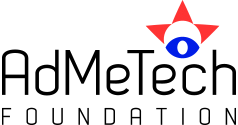 Faina Shtern, MD
Faina Shtern, MD
Title: President and CEO, AdMeTech Foundation
After she emigrated from the Soviet Union as a Jewish refugee escaping oppression, Faina Shtern knew what she wanted to do once she landed in America in the late 1970s: medical research.
With a medical degree from Chemovets Medical School in the Ukraine, Shtern proceeded to pursue her dream, eventually working at a number of prestigious institutions over the years, including being appointed a clinical and research fellow at Massachusetts General Hospital and Harvard Medical School, where she subsequently became a faculty member.
She’s also worked in top research posts at Children’s Hospital Boston and at the U.S. Department of Health and Human Services. But her medical career took an abrupt turn when a relative was diagnosed with prostate cancer in 1996 — and Shtern learned to her shock how little research had been conducted in that field. A year later, she helped found the nonprofit AdMeTech Foundation, today a four-employee institute whose mission is to expedite development and implementation of advanced imaging technologies for early diagnosis and treatment of prostate cancer. Described as a “one-woman crusader for men’s health,” Shtern recently spoke with BBJ correspondent Jay Fitzgerald about her field and the state of prostate cancer research.
Age: 61
Education: Medical degree, Chemovets Medical School, Ukraine, 1978
Residence: Boston
THE INFLUENCE FACTOR
When you need advice, who do you turn to for guidance? My best friends, my favorite mentors and my colleagues who I trust and love. Who was an important mentor in your life? Absolutely and unquestionably, Dr. Alex Margulis, the former chair for years (at the University of California San Francisco). Alex has trained several generations of the key leaders in my field. But what is the most important thing about Alex was the vision, the kindness and the compassion he brought to the profession.
What advice would you give young women thinking about entering medical research? To think very carefully about if you are passionate enough about making a difference. … To think very carefully if you have enough discipline, enough commitment, enough dedication. Not only that, but do you also have enough courage to face failure and challenges, which are inevitable.
What’s the hardest part of raising awareness about complicated medical issues — raising money, getting media and the public’s attention, coordinating campaigns with other medical experts? The predominant perception in the medical community and the general public is that prostate cancer is not a big deal, it does not kill, it’s the kind of disease men just get as they age. In reality, prostate cancer is the most common malignancy in the United States. It has the highest incidence rate and is the second most lethal cancer in men. In order for us to get the attention of the general public, elected officials, potential donors and everyone who can make it possible for us to have effective and sustainable programs, we have actually been gathering and using the best evidence in order to reframe prostate cancer as a public health priority and make it a central issue in men’s health.
Is the federal government doing enough in terms of funding and pushing prostate research? Absolutely not. Most people do not know that prostate cancer is more common than breast cancer. But if you look at research funding by the federal government, it is less than half compared to breast cancer. Therefore there is no mystery that we do not have precision diagnostics for prostate cancer. The impact is unnecessary loss of life, unnecessary and failed procedures that cost billions of dollars each year for our health care system.
How exactly did you get into prostate cancer research? It’s been a very personal reason. While I was leading programs in cancer in general and breast cancer specifically, nationally and internationally, my father underwent a procedure for what was clinically diagnosed as a benign disease. It turned out to be prostate cancer after surgery. I’m very close to my family and very close to my father. It was a profound shock to me to look at the state of patient care in prostate cancer and I was absolutely appalled that the quality of patient care and that the diagnostics tools specifically were lagging several decades behind what we were creating or had for other cancers.
Are you encouraged or discouraged, or something in between, when it comes to the public awareness of prostate cancer and the need to diagnose it early? There’s actually a very striking and frustrating lack of pubic awareness about prostate cancer as a public health care crisis in all men. What’s the one thing you’d like to realistically accomplish in this area over the next five years? The absolute key challenge, in my view, in prostate cancer care is the need to develop accurate diagnostic tools. You must have heard a lot about the critical importance of precision, individualized approaches to patient care, including screening, diagnosis and treatment. But precision care is not possible without accurate diagnostic tools. In September, we’re convening the first global summit on precision diagnostics for prostate cancer and our goal is to expedite development.
What do you do to relax when not working? Well, that’s easy: reading and dancing. I love competitive ballroom dancing because it has three things I love very much: beautiful music, exercise that happens to be very graceful, and also teachers who I love. I have no time to think about anything else but my dancing when I’m with my teachers. And I love it.
Do you have a favorite vacation spot? Actually, two. We love London. My husband and I love London because of the outstanding theater there. But our very favorite place to go to is a small island on Lake Orta in Italy. We love this island for its beauty and silence.







